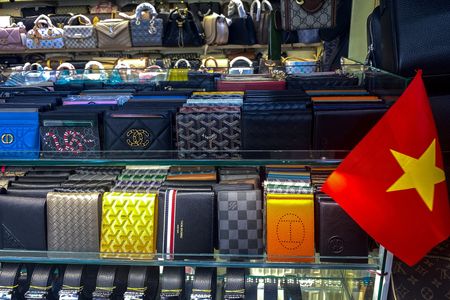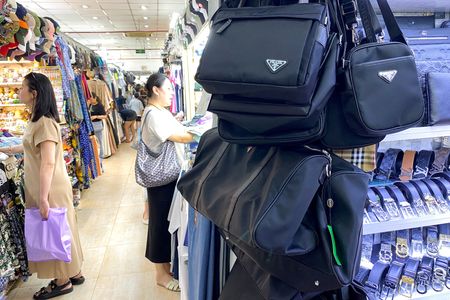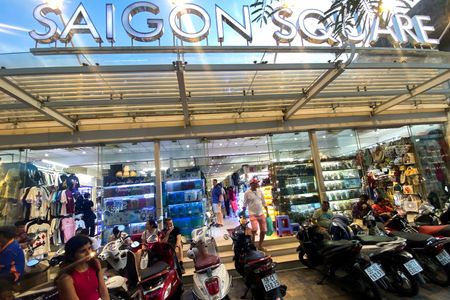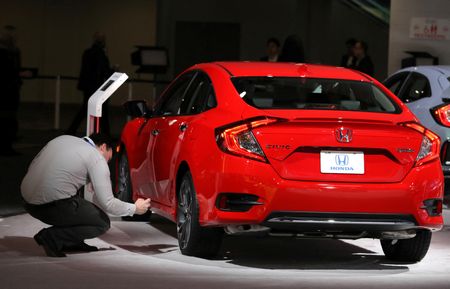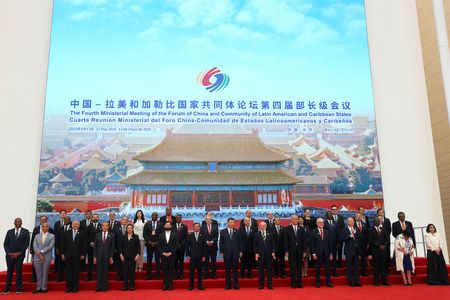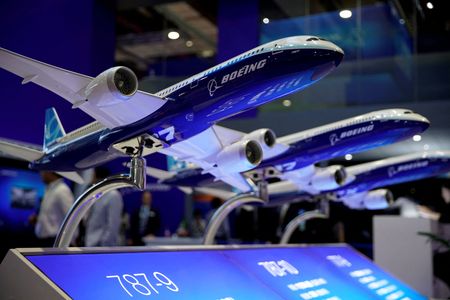By Francesco Guarascio
HANOI (Reuters) -Vietnam is stepping up its fight against counterfeits and digital piracy after the United States accused the country of being a major hub for these illegal activities and threatened crippling tariffs, documents reviewed by Reuters show.
Among products that are subject to increased inspections at borders to ascertain their authenticity are luxury goods from Prada and Gucci owner Kering, electronic devices made by Google and Samsung, and toys from Mattel and Lego, according to a document dated April 1 from the customs department of the finance ministry.
Consumer goods such as shampoos and razors sold by Procter & Gamble and Johnson and Johnson products are also included in the list, the document showed.
The crackdown focuses on imported counterfeits, not those that could be made in Vietnam, which are also of concern to the administration of U.S. President Donald Trump.
A clampdown on the use of counterfeit software is also underway, according to a warning from inspectors at the Ministry of Culture sent on April 14 to a local company, whose name was redacted from the document seen by Reuters.
The letter, it says, followed a complaint from the Business Software Alliance (BSA), the industry’s global trade association, whose members include Microsoft, Oracle and Adobe.
A person familiar with the matter said similar letters have been sent to dozens of companies since the start of April.
Vietnam’s finance and culture ministries and the customs department did not reply to requests for comment, nor did any of the mentioned companies.
A spokesperson for BSA said it has for years urged Vietnam to monitor and take action against the unauthorised use of software.
Vietnam’s recent moves are part of an array of measures taken or pledged by the Southeast Asian export-reliant industrial hub to persuade the Trump administration to reconsider punitive tariffs. Vietnam faces duties of 46% on exports to the U.S., its largest market, if confirmed in July after a global pause.
Vietnam and the U.S. began informal talks to avoid tariffs well before Trump announced global “reciprocal” duties on April 2.
Enhanced protection of intellectual property, including the fight against counterfeits and digital piracy, is among the issues being discussed with the U.S. in ongoing tariff talks.
Also under discussion are the reduction of Vietnam’s big trade surplus, the fight against trade fraud such as illegal transshipment, and lowering tariff and non-tariff barriers for U.S. businesses, according to a person briefed on the matter.
Prime Minister Pham Minh Chinh last month instructed officials to strengthen the fight against trade fraud, “especially regarding the origin of goods, counterfeit goods.”
The measures are meant to please Washington but some may irk China, which is the main source of Vietnam’s imports.
“NOTORIOUS MARKETS”
Despite enhanced controls on imported counterfeits, fake luxury goods targeted by the authorities were on display last week at Saigon Square Shopping Mall in Vietnam’s business hub Ho Chi Minh City.
The mall is on the list of “notorious markets for counterfeiting” published in January by the U.S. Trade Representative.
“They are not authentic and are made in China,” said an attendant in one of the stalls in the market, referring to Prada wallets and bags she’s selling.
She noted counterfeit Prada belts, also available at her stall, were made in Vietnam. The person declined to be named due to the sensitivity of the subject.
Calls to Saigon Square went unanswered. Its website says the mall offers “imitations of famous brands at low prices”.
The USTR removed a Vietnamese marketplace at the border with China from its latest watchlist published in January after a crackdown by local authorities. It praised Vietnam’s efforts to combat illegal practices, but also expressed concerns over continuing online sales of counterfeit products and Vietnam’s role in producing fakes.
The Vietnamese platform of Singapore-based e-commerce giant Shopee remained a major hub for the sale of counterfeits, the USTR said.
“As more brands have shifted production from China to Vietnam, stakeholders report that Vietnam has become a key manufacturer of counterfeit products,” the USTR said in a separate report published in April.
The USTR and Shopee did not reply to requests for comment.
To improve copyright protection Vietnam is planning to set up specialised courts “to fulfil Vietnam’s commitment… to strictly enforce intellectual property rights” and attract foreign investment, according to a draft law reviewed by Reuters scheduled to be approved by parliament in June.
(Reporting by Francesco Guarascio; additional reporting by Phuong Nguyen and Khanh Vu; editing by Lincoln Feast.)

